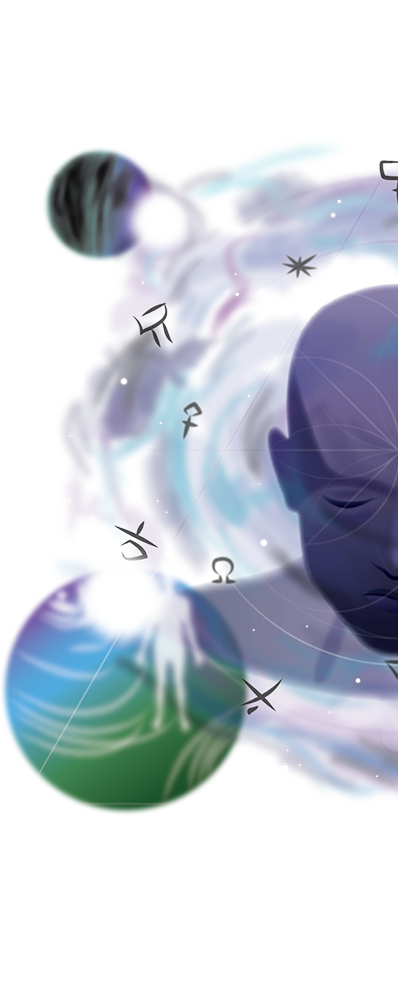By Rosemary Ellen Guiley
Copyright Visionary Living, Inc.
I am frequently asked by parents how to deal with psychic experiences reported by their children. Many times children are disturbed by their experiences, and parents want to know the best response. How should psychic experiences be evaluated, and dealt with in family life?
I believe that many children have genuine psychic experiences. Sometimes these experiences diminish over time, and sometimes they increase and start to dominate a child’s attention and development.
Not all experiences reported are genuinely psychic or paranormal, however. Sometimes children are influenced to mimic what they see on television and in films. Sometimes their seemingly paranormal experiences are related to other issues going on.
The impact of psychic and paranormal experiences on a child’s stability is a delicate matter for parents, and sometimes there are no easy, universal solutions. I am not a licensed therapist, and I usually advise parents to seek professional counsel to rule out natural explanations before considering psychic ones.
Above all, children should never be pushed to be psychic. The paranormal can be traumatizing to adults, and children can be far more sensitive in their reactions.
For some advice and answers on these matters, I consulted an expert, Dr. Sueli S. Petry, PhD, a licensed psychologist and marriage and family therapist. She is on the faculty of The Multicultural Family Institute in Highland Park, New Jersey, and the University of Medicine and Dentistry of New Jersey-University Behavioral Health Care in Newark, New Jersey.
In her clinical practice, Dr. Petry works with children, adolescents and families. She has published on bereavement, spirituality, and cultural issues for families in treatment. She is a co-author of the newly revised Genograms: Assessment and Interventions (3rd edition), available at bookstores and online. Dr. Petry’s contact information is given at the end of this article.
I asked Dr. Petry the questions I am asked most often by parents of children of all ages. Here are her answers:
REG: How do we know if a child is having genuine psychic experiences?
Dr. Petry: Genuine psychic experiences are difficult to assess. Observe your child, ask questions and look for natural explanations first. Consider the possibility of a psychic experience only after all natural explanations have been ruled out. Do not rush to judgment — true psychic experiences are revealed over time.
REG: What are typical psychic experiences reported by children?
Dr. Petry: Children who are grieving the loss of a parent or grandparent have told me they see or hear their loved one. One child told me she saw her grandmother sitting in a chair near her bed, and she felt her grandmother was watching over her. Another told me she heard her father’s voice calling her name. In these cases, the child felt comforted by the presence.
Sometimes children will report upsetting events. For example, a 9-year old boy told me that he heard noises when he tried to sleep and he saw drawers opening and closing. A 7-year old girl was afraid to sleep alone because she heard a ghost crying in the middle of the night.
REG: What are natural explanations that should be considered? Especially if they are disturbing?
Dr. Petry: When children tell me these things I ask questions to rule out trauma, anxiety or depression. Children and adults suffering severe psychological distress often report auditory and visual hallucinations, more commonly auditory. This is a typical reaction for children under stress, and the diagnosis is “psychotic feature” or “psychotic episode.”
This is a natural explanation, and would require treatment. In my experience, when children report disturbing phenomena, there are stressful situations occurring in their lives.
In instances of bereavement, when the child is comforted by the experience, it may be a psychological mechanism to help the child cope with the loss. Thus, it may be considered a natural explanation.
REG: Do psychic experiences go away on their own as a child gets older?
Dr. Petry: Yes, older children are less likely to report psychic experiences. Younger children are more vulnerable to psychic experiences because their psychological defenses are not as well developed. As children mature they develop coping mechanisms to deal with life’s stresses and seem to “shut of”f psychic experiences.
REG: Should experiences or the reporting of them be discouraged?
Dr. Petry: If the child is disturbed by the experience, I would encourage the parents to explore if the child is under stress, and to seek professional help if it continues. If the child is not disturbed by the experience, I recommend that the parents simply listen and accept what the child says. It is good to ask a few questions to show your support, but don’t overdo it. Children enjoy attention, as we all do. If the event is given too much emphasis, the child may feel pressured to create more phenomena.
REG: How should teens be handled as opposed to children?
Dr. Petry: Teens may be approached in the same way as children. In addition, I would explore the possibility of substance abuse causing stress or hallucinations.
REG: When is it advisable to seek professional counsel? What type of professionals should be consulted?
Dr. Petry: Professional help is required if there is a disruption of daily functioning that does not improve within a short period of time. Signs are disruptions in sleep, appetite, mood, or unusual behavior.
REG: Should children and teens be encouraged to use and develop their psychic abilities?
Dr. Petry: This is a cultural and personal choice, and impossible to answer definitively. If the family wishes to encourage it, and if the child is functioning well in school, has friends and is generally happy, I see no harm. I would caution against encouraging psychic abilities, to the detriment of developing relationships with friends, and devoting time to enjoyable activities and to studies.
In the end, the child has to learn to live and function in a largely “non-psychic” world. This is the most important and valuable work a parent can do. A good rule of thumb for parents facing this dilemma is to ask themselves: “Am I being helpful to my child, or am I seeking attention for myself?”
REG: Are there cultural differences in how we view and report these experiences?
Dr. Petry: Absolutely. I find that Latino and African American families often report psychic experiences. Sometimes it is labeled as a “spiritual experience.” It is accepted as part of the culture and is not encouraged or discouraged. It is simply accepted. European Americans are less likely to report psychic experiences, and more likely to see it as a psychological problem.
REG: What effects do TV and the media have on creating or intensifying problems with psychic experiences?
Dr. Petry: I always ask about the TV shows or movies the child is watching. Often, a disturbing experience is related to the child watching scary movies. In addition, the increasing popularity of shows about psychics and psychic phenomena have generated an increase in reporting psychic experiences. This is not necessarily problematic. Children and parents feel freer to report a psychic experience because there are fewer stigmas attached due to exposure in the media.









